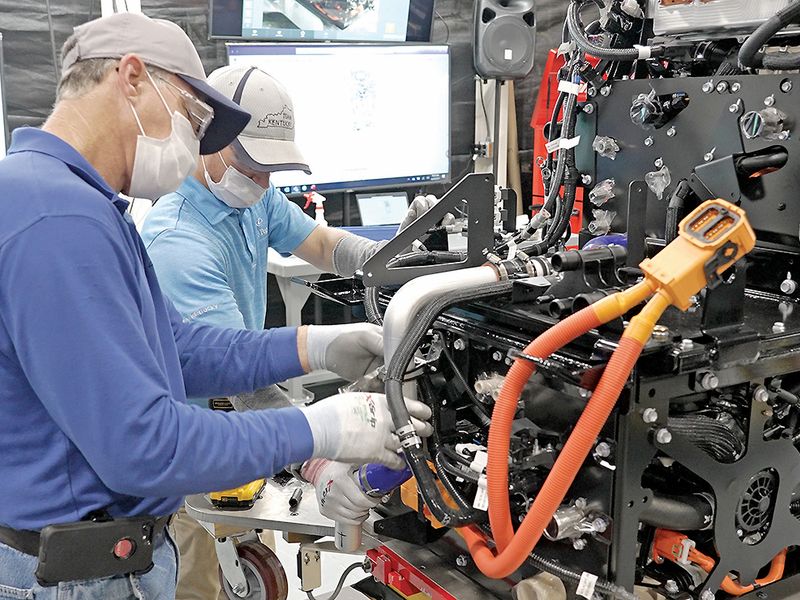
TOKYO — Even as it pushes ahead with big plans for electric vehicles, Hyundai Motor Group is readying a hydrogen blitz.
Hyundai, one of only a handful of auto industry true believers in the potential of hydrogen-powered vehicles, plans to present a vision for the future next week, showing how compressed gas can power everything from cars to freight haulers and all manner of new mobility.
Promo videos for the planned Sept. 7 event tease a high-powered racer tearing up a track, a buslike cross-country cargo mover, and the promise of the ability to “charge hydrogen, wherever you are.”
“Join the hydrogen future full of surprises,” the clips beseech.
The South Korean carmaker is billing the public proclamation as “Hydrogen Wave.”
But the forum is expected to go beyond vehicles of the future by outlining plans for a hydrogen infrastructure that covers next-generation fuel cell systems, fueling networks and other applications for the futuristic green technology, both in the auto sector and other industries.
Hyundai will also pitch a business plan for the vision.
Its ramp-up of hydrogen-based technologies comes as much of the auto industry sidesteps fuel cells and stampedes toward full battery-electric vehicles.
Japanese rival Toyota Motor Corp., however, also wants to pursue hydrogen fuel cell technology.
Last week, Toyota announced it will open a new dedicated assembly line at its plant in Georgetown, Ky., in 2023 to produce integrated dual fuel cell modules for use in hydrogen-powered heavy-duty commercial trucks.
In a statement on the project, Toyota said the modules “will allow truck manufacturers to incorporate emissions-free fuel cell electric technology into existing platforms with the technical support of Toyota under the hood.”
The modules will weigh approximately 1,400 pounds and deliver 300 miles of range at a full load weight of 80,000 pounds, according to Toyota. The kits will include a high-voltage battery, electric motors, transmission and hydrogen storage assembly from top-tier suppliers.
Toyota also said that it will provide powertrain integration expertise to help truck manufacturers adapt the systems to a wide variety of applications.
Hydrogen plays an important role in Hyundai Motor Group’s multipronged approach to cutting emissions, a strategy that also includes battery-electrics and hybrids.
Hyundai launched the industry’s first mass- produced fuel cell passenger vehicle, the Tucson Fuel Cell, in 2013 and currently offers the Nexo fuel cell crossover and Xcient Fuel Cell heavy truck. Last year, it launched a brand called HTWO to promote the use of the H2 hydrogen molecule in developing and promoting hydrogen fuel cell systems for various transportation applications.
Honda Motor Co. also has a long history of working on future hydrogen technologies with General Motors. In Europe, German maker BMW also continues to dabble in hydrogen as a zero-emission pathway.

